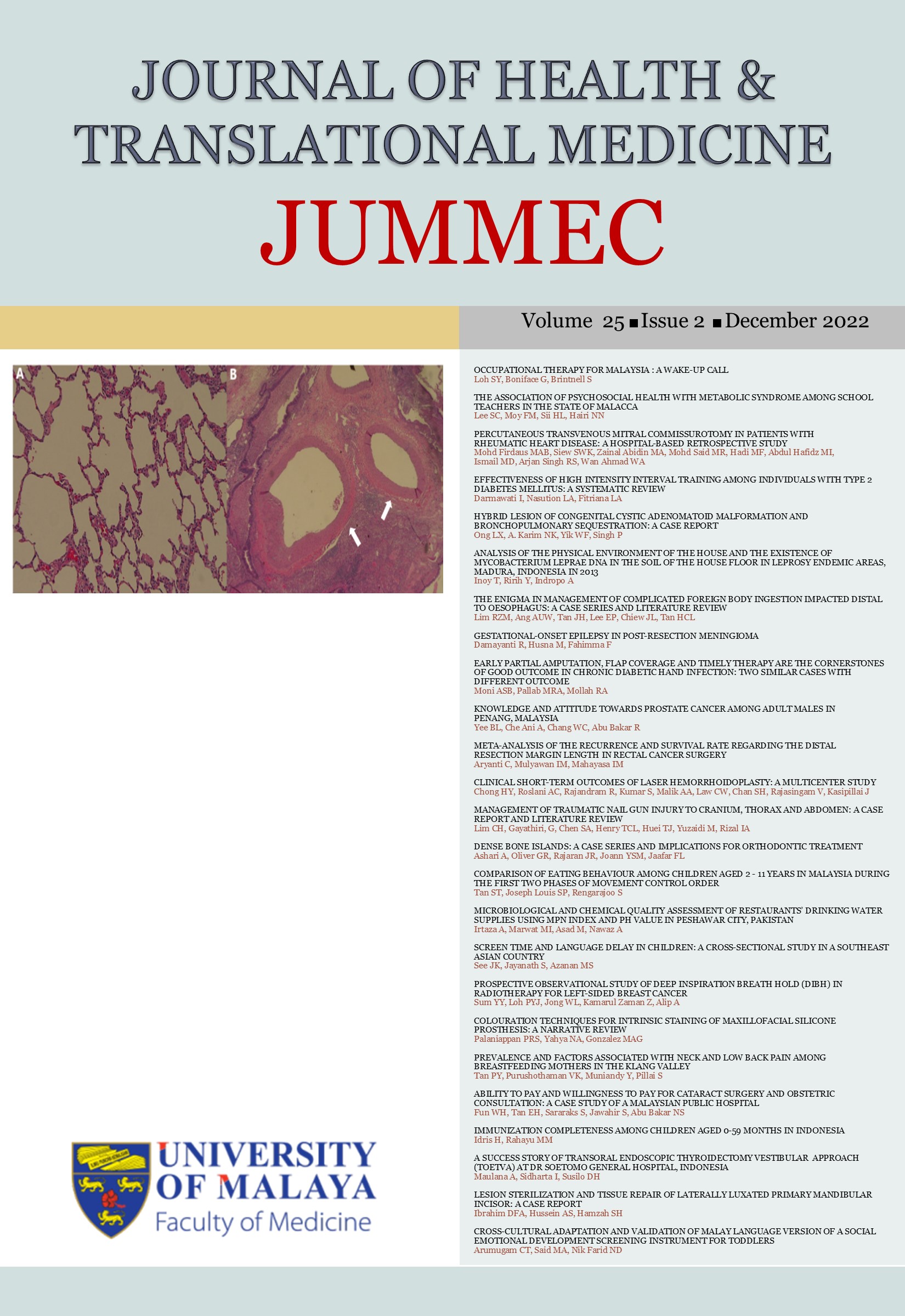THE ASSOCIATION OF PSYCHOSOCIAL HEALTH WITH METABOLIC SYNDROME AMONG SCHOOL TEACHERS IN THE STATE OF MALACCA
Received 2020-12-15; Accepted 2021-09-11; Published 2022-07-01
DOI:
https://doi.org/10.22452/jummec.vol25no2.2Keywords:
Malaysia, metabolic syndrome, social support, working adultsAbstract
Background: Metabolic syndrome (MS) is a major public health challenge worldwide. The risks of MS and chronic diseases are further escalated with the increasing burden of psychological health. This was a cross-sectional study aimed to investigate the relationship between socio-demographic, lifestyle and psychological factors and MS, as well as the independent relationship between social support and MS among school teachers in Malaysia.
Methodology: Multi-stage sampling was used to recruit participants from the state of Malacca, Malaysia. Data on socio-demographics, lifestyle factors and psychological health were obtained using self-administered questionnaires, including Short-form International Physical Activity Questionnaire (IPAQ), Depression, Anxiety and Stress Scale (DASS-21), Job content questionnaire (JCQ) and the revised 8-item Malay version of the Multidimensional Scale Perceived Social Support (MSPSS-M). Anthropometric measurements and metabolic risk assessment were conducted. Univariate analysis followed by multiple logistic regressions was conducted using complex sample logistic regression analysis.
Results: Of 1511 participants, the prevalence of MS was 23.3% (95% CI: 20.7, 26.1). MS was significantly associated with increasing age, male gender, Indian ethnicity, usage of saturated fats, lesser sleeping duration, job strain, iso-strain, and lower perceived social support. After adjusting for potential confounders, higher perceived social support from family, friends or both were significantly associated with the lower likelihood of MS by 4% (OR 0.96; 95% CI: 0.93, 0.98), 10% (OR 0.90; 95% CI: 0.85, 0.96) and 4% (OR 0.96; 95% CI: 0.94, 0.98), respectively.
Conclusion: Metabolic syndrome was associated with increasing age, male gender, Indian ethnicity, usage of saturated fats and lesser sleeping duration in our population. Psychological health such as job strain, iso strain as well as low social support may be modifiable risk factors for MS.
Downloads
Downloads
Published
Issue
Section
License
All authors agree that the article, if editorially accepted for publication, shall be licensed under the Creative Commons Attribution License 4.0 to allow others to freely access, copy and use research provided the author is correctly attributed, unless otherwise stated. All articles are available online without charge or other barriers to access. However, anyone wishing to reproduce large quantities of an article (250+) should inform the publisher. Any opinion expressed in the articles are those of the authors and do not reflect that of the University of Malaya, 50603 Kuala Lumpur, Malaysia.


